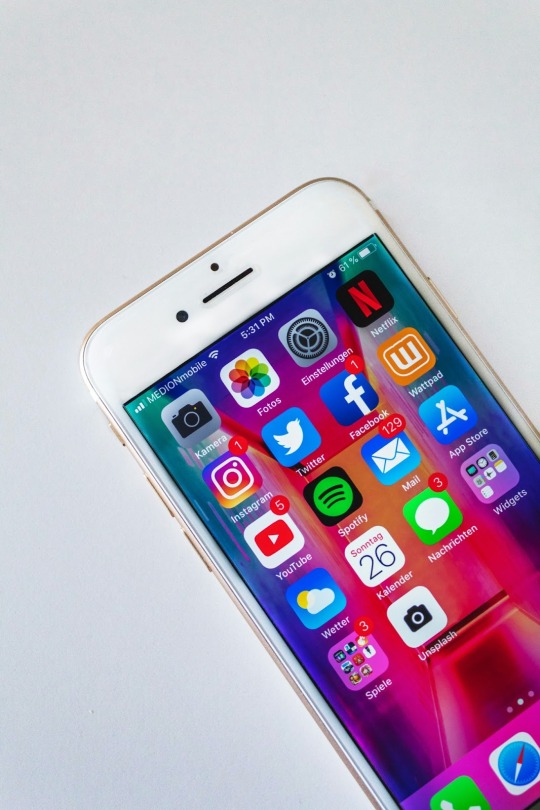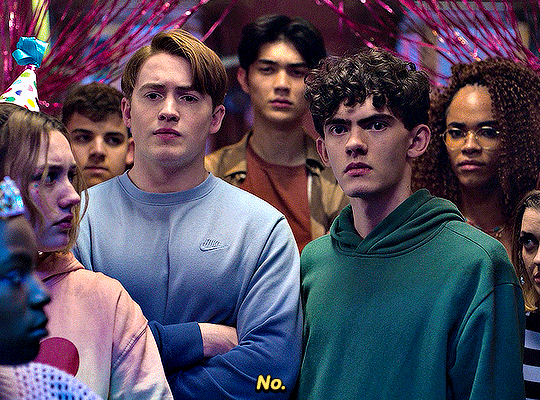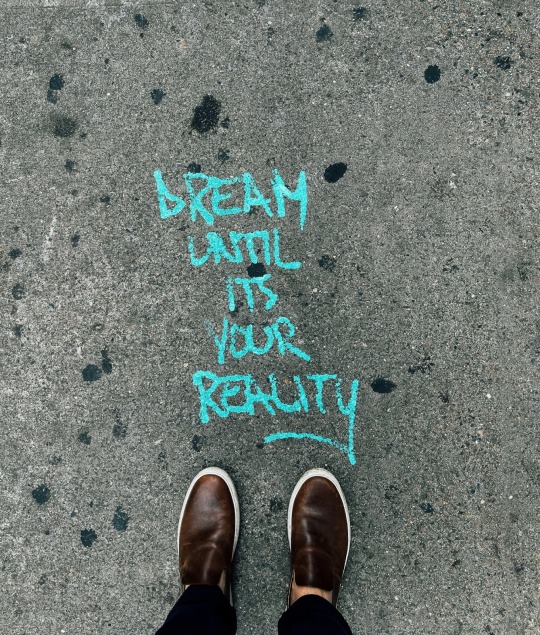How disabled characters actually made me ableist toward myself.
Don't wanna be here? Send us removal request.
Text
Superman's Legacy: How Christopher Reeve Embodied Hope On and Off Screen

Photo by Daniel Álvasd from Unsplash
You'll believe a man can fly. That was the slogan for the 1978 film starring Christopher Reeves as Superman. Before Marvel's Cinematic Universe and Tobey Maguire as Spider-Man, audiences only had one movie as an on-ramp to the world of bright spandex suits and superhuman people.
The year prior, Star Wars debuted, exposing audiences to a faraway galaxy. Superman, in contrast, is from Kansas and an All-American Boy Scout.
He deals with rich businessman Lex Luthur, solving his problems with moral values imbued in the few punches he throws. Superman is about hope.
When current times were experiencing war, Superman was a larger-than-life expression of helping change the tides of audiences' values. Lenord Kriegel recounts what Superman (1978) meant to 7-year-old him.
"It was Superman who helped create my American journey so that to this day, the face and body of truth, justice, and the American way remain those of that comic book superhero with the large S on his chest. * While the poignancy of his death derived from how successfully Reeve had turned himself into the Man of Steel, it was a death that threatened to overwhelm his entire career." (Krigel 2006 p.259)
Today's social media landscape has made celebrities' personal lives fodder for the public to insert themselves in. As far as audiences are concerned, actors are their characters. Some do everything they can to escape a reputation as a single character. It is understandable to be disgruntled with the media.
However, there is also a tremendous power of having followers. People hear and act on the words their favorite "characters" support.

Photo By Sara Kurfel8 from Unsplash
The importance of a character in the media and real communities contributes to the conversations about how much actors should identify with roles involving race, ability, or gender identity.
"Ideally, anybody should be able to play anybody, but only when there is a truly level playing field of opportunity." (The Guardian)
Actors do not suddenly gain the power to fly or climb walls when they wear those suits. What they do receive is attention and social capital. Creating

"Great power which comes with great responsibility."
The power Reeves gained from being the silver screen's original superhuman was not wasted. Reeves said, "I am getting older, and time is ticking. The more time passes, the more I feel a sense of urgency, and I can accept anything except for complacency."
This quote was after his paralyzing horse riding accident. Reeves used his power to strive and invest in walking again. Moving towards a better quality of life since you've only got one.
The inspiring acts of his story go beyond the poster of him in a flying cape and being the face of a charity designed to support the disability community, which he became a part of.
He was driven to move up and over his circumstances. Like Superman, he maintained hope.
Krigel "If a spinal cord crushed by a fall from a horse was a ludicrous ending for a Man of Steel, it was an even more ludicrous ending for a Hollywood star.
Yet what other than a freak accident could turn all-powerful Superman into a helpless cripple or make the death of a Hollywood actor synonymous with the death of America's superhero?"
The crossroads of who an actor plays and what someone in real life is capable of could not conflict more. When Christopher Reeves fought for his life, audiences were given a new perspective for so long before and after Hollywood was sensationalized.
All actors are scrutinized for what went "wrong" after fame. Accidents are events that go wrong. With less judgment, there's more room for shock.
For many people who perceive disability as more of a descriptor word for the body, the words' disabled' and 'superhero' may not seem to go together." (Norris)
Make no mistake about it: not only did the actor die, but Superman died with him.
In a virtual reality moment, more real than computerized images of the Man of Steel leaping tall buildings or flying into the up, up, and away, he left for good.
As cripple, Superman would be forced to surrender the holy triad of truth, justice, and the American way. (Krigel 2006 p.260)
Giving up can connect to pity. Resigning oneself to fit into the community of people with disabilities can be difficult sheerly because of expectations and fears of disablement that outsiders feel.
Directly after his accident, Reeves permitted his wife, Danna, to let him pass.
She was the one to maintain hope at that crossroads of life. The goal to walk again also shows the double-edged sword of striving for a better life and seeing and accepting where you are now.
Since Superman, Science Fiction storylines often parallel current political or social issues through superheroes.
Having disabled superheroes helps to provide role models for the disability community and also exposes the "normal."
Sources
Guardian. https://www.theguardian.com/society/shortcuts/2019/jan/09/is-it-ever-ok-for-non-disabled-actors-to-play-disabled-roles
KRIEGEL, L. (2006). Superman's Shoulders: On the Healing Power of Illusion. Southwest Review, 91(2), 258–267. http://www.jstor.org/stable/43472711
Norris, M. (2015). Comics and Human Rights: Oracle and Representations of Disabled Superheroes.LSE. http://eprints.lse.ac.uk/80270/
#superman#christopher reeve#superhero#spinal cord injury#disability community#hope#fame#representation#actors#responsibility#movies#1978#inspirational story#real life\#disabled life
0 notes
Text
All those things I can do. All those powers. And I couldn't even save him.
Clark Kent (Superman 1978)
3 notes
·
View notes
Text
Is Faith & Will in Baseball Enough to Overcome Disability?
The Hill (2023) It is based on the true story of baseball player Rickey Hill and shows the general struggle between a father and son over God’s plan for Rickey.
Young Rickey is defined by his love of baseball and his “prodigy” batting skill. Rickey’s girlfriend thinks he’s cheating because he can��t have full body rotation in braces. Yet he can hit rocks with a stick over 100 feet.
Rickey’s girlfriend says “I know what a homer looks like.” Rickey responded, "It's not a homer until you're in the majors.”
Hitting to close to Home
He will eventually get his opportunity to bat in the majors, but he has obstacles before that. A main obstacle is the attitude of his father. James Hill is a preacher. His faith comes before his family.
A scene that demonstrates this is a dinner argument with him and his mother in law. After James says grace, his mother in law says “(Faith) It’s mighty hard to muster when he providth so little… fifty dollars a month, your children are starving.”
James “You know sometimes Lillian sometimes faith takes sacrifices of the Apostles.” In response “None of the Apostles had bad bones!” James “That’s enough!” Lillian “You can shut me down, but how are you going to quiet that voice that says you starved that boy (Rickey) and put him in a wheelchair. (The Hill, 2023, 00.13.00-00.14.30)
Life Stats

Photo by Jose-Francisco-Morales from Unsplash
The word wheelchair is used as a marker of failure here. It is supposed to be an awakening to James that his faith is obscuring his ability to take care of his family. Lillian directs attention to the fact Rickey has outgrown his braces and is not going to get better without new ones, but the family doesn’t have money for a doctor.
At the mention of new braces James tries to tell Rickey what doctors believe, and Rickey stops him and asks to be excused. James confronts Lllian and says he will not apologize for his faith in God.
She says her faith is all she’s got and it sustains her but she lives here on Earth. And Rickey needs a doctor to get better. The next scene James catches Rickey and his older brother Robert looking at baseball cards. Robert says Rickey loves baseball and James quickly says he’s not going to play baseball.
The Preacher's Prodigy
You are your younger brother’s keeper and what you put in his mind. He addresses Rickey
“Son, I’ve seen you hitting those rocks. You would do that all day if you could. Even suffering through pain. You're not going to play baseball. You can’t even run. And if you did you’d be ridiculed and sustain an injury you’d never recover from. He is referring to his spirit and not Rickey’s legs. James says “You have the heart of a lion, but the soul of a timid lamb. And I wanna protect that” (The Hill 2023 00.17.00-00.17.49)
The need for protection at the cost of a perceived reality check from a parent is reminiscent of the struggles of Finding Nemo and the model of overprotective parenting. The relationship of limits and aspirations for a child with a disability is often different than a parents. All parents are responsible for setting limits and maintaining their children’s safety.
Swinging Against the Odds
Having a disability can make those boundaries less apparent. Later it is mentioned how Rickey has defied the doctor’s expectations many times. So why can’t Rickey play baseball? After so many miracles.
James’s struggle with Rickey’s potential seems to stem from a fear as a parent outweighing miracles. A turning point happens when Rickey defies his father and tries out for baseball. When he finds out James almost spanks Robert for forging his signature on a permissions slip. When Robert says through tears “You can beat me all night. You’re not going to change Rickey.”
#based on a true story#baseball#disabilities#disabled family#The Hill#2023#netflix#Rickey Hill#disabled life#sports movie#Disabled determination
0 notes
Text
Religious Compliments Aren't For Strangers
John 9:1-3 — Not Because of Sin
“As he went along, he saw a man blind from birth. His disciples asked him, “Rabbi, who sinned, this man or his parents, that he was born blind?”
“Neither this man nor his parents sinned,” said Jesus, “but this happened so that the works of God might be displayed in him.”
Religion combines beliefs and organized traditions surrounding the shared faith in a superior entity, God. Multiple religions share commonalities and differences in interpretations of texts and broader morals and ethics.
The connections between disability, religion, and sense of self or experiences are personal. Those connections are heavily shaped by society.
“Society favors a medical model of disability that sees the barriers for people with disabilities as a fault of their limitations and can cause the belief that the community needs pity or sympathy.”
The Fear Barrier
Fear of disablement leads to the media’s assumptions about the lives of severely disabled people. disability again means loss of humanity.” (Longmore, p.136)
Longmore references a “loss in humanity” that conflicts with most beliefs among religious communities, such as Christians ‘You shall love your neighbor as yourself. ‘Most people calling a disabled person inspirational don’t have ill will.
Religious Misinformation
The compliment is misinformed. I believe there is no better example than “God Bless You.” This statement is more rooted in beliefs, assumptions, or religious views than it is about a person with a disability.
Photo by Gift Habeshaw from Unsplash
Real Life
Amy Kenny the author of My Body is Not a Prayer Request; .” I believed that I could perfect my way out of people demeaning disability.but that mindset feels like complacency in toxic theology.” This complacency is a hidden internalizing of various “ism” that left unnoticed can do significant damage to self-image.
The Bible says, “As he went along, he saw a man blind from birth. His disciples asked him, “Rabbi, who sinned, this man or his parents, that he was born blind?” “Neither this man nor his parents sinned,” said Jesus, “but this happened so that the works of God might be displayed in him.”
This passage demonstrates a view of disability that is not focused on a deficiency but a different way “works of God might be displayed in him.” From this, people with disabilities are seen as human, and “works of God” are created the same as everyone else.
Films’ Disabled Characters Central Plot Line Of God
The disconnect may derive itself from what makes God Bless Your kind. The X-Men franchise is an example that is predominantly subtle. A film that does feature religion and disability in conflict is The Hill (2023) It is based on the true story of baseball player Rickey Hill and shows the general struggle between a father and son over God’s plan for Rickey.

Photo from Mark Tegethoff from Unsplash
The film starts with a 9-year old Rickey hitting rocks far with only a stick. One rock breaks a neighbor’s windshield and when Rickey offers to pay for it because he is taking responsibility “like daddy taught” the man is more interested in seeing the feat of a child with leg braces hit a rock hundreds of yards away from his windshield.
The man calls Rickey a prodigy. This sentiment is later referenced as a gift and miracle later in the film. The character grounded in his beliefs of God’s plan for Rickey is not baseball is his father James Hill.
At the end of the film James is confronted by his wife with
“ Doctors told them Rickey would never walk and he ran, they said he’d never survive the operations and he did. How many miracles do you need?”
James never saw his son play. Early in the film
“The most powerful sequence comes when Dennis Quaid (who plays James Hill) gives Young Rickey an ultimatum to choose between God’s plan or his own plan. The next scene, Young Rickey says he chooses both: that God’s plan is for him to play baseball, quoting a Bible verse and drawing a cross connecting the four bases of a ball diamond.” (Fraley, 2023, WTop News)

Photo from Mitchell Leach on Unsplash
Fraley references many classic sports movies like Rudy. He also equates the beginning scene with Forrest Gump and his leg braces not stopping Gump from running.
Forrest Gump’s arc is more stereotypical than The Hill due to it being a biography film. “While “Gump” straddled the line of art (Oscar Best Picture) and entertainment (No. 2 grosser of 1994), “The Hill” will divide critics and audiences. Critics may find the nostalgic glow corny and the on-the-nose dialogue unrealistic as characters say exactly what they’re thinking, but families seeking a PG sports flick don’t really care about that.” (Fraley, 2023, WTop News)
The Hill prioritizes showing how the dreams of Rickey and his father conflict. James attempts to be supportive of the reality of his son’s limitations. Rickey is focused on his reality that hinges on recognizing his talent and passion for baseball.
References
Fraley, J. (2023). Review: ‘The Hill’ is the definition of a feel-good baseball flick of faith. WTop News.
Kenny, A. (2022). My body is not a prayer request: Disability justice in the Church. Baker Books.
Longmore, P. K. (2003). Screening stereotypes:images of disabled people in television and motion pictures. In Why I burned my book and other essays on disability (pp. 131-146). Temple University Press. R
#based on a true story#baseball#Preachers Soh#Based on a true story#disabilities#The Hill#Rickey Hill#father x son#Family#arguements#2023#Netflix
0 notes
Text
God don't make mistakes. I feel his perfection guiding me when I swing that bat. I bear witness to his power when the ball sails to the backfield fence. -The Hill (2023)
#Rickey Hill#The Hill#based on a true story#Baseball#Disability#Sports Movie#Religion#Batting#disabled life#God
0 notes
Text
Audience Reactions to Disability and LGBTQIA+ Storylines
Audience Perception of Character Traits In narratives with disability compared to sexual orientation, both pick traits that make others seen as selfless. The diagnosis of Charlie's eating disorder occurs after the audience sees how concerned Nick and Charlie's sister Tori are. One part of the concern is Charlie's actions; the other is how to approach the topic.
Charlie's Eating Disorder Diagnosis

Photo by Elena Mozhvilo from Unsplash
Balancing Actions and Approach Nick researches to find out what's going on with Charlie. This step of struggling is part of the process of being diagnosed, and how scary it can be to talk about the possible relief of treatment for the diagnosis there is.
According to Henderson, "Stigma is thus a product of social interaction between 'the normal' and 'the stigmatized.' During the process of stigmatization, people with mental illness are distinguished and labeled.
The Struggle and Fear of Diagnosis
Individuals who display certain characteristics that are culturally defined as 'deviant' thus become linked to undesirable features ('labeled') and are open to discrimination." Finding a letter in the LGBTQIA+ community in Heartstopper is loving and liberating. That's how it is for Nick and Charlie.
Stigmatization and Social Interaction

Contrasting Experiences: Nick/Charlie vs. Ben
However, another boy named Ben is meant to be the villain and an antithesis to Nick.
"Ultimately, Ben is alone. He doesn't have queer friends or gay relationships like what Charlie and Nick have. Ben doesn't have accepting friends or accepting family members like Charlie and Nick have. Boys like Ben are suffocated by the closet and erased by homophobia." (Telvin)
Disability as a Punishment Trope
This phenomenon of making villains queer can be seen in Disney's Ursula or Captain Hook. Scar and Darth Vader are well-known villains who have disabilities.
Disabled villains are a writer's way of using a disability to be the reason they are evil. They are "paying for their sins" with disabling consequences.
Casting Choices and Representation Disabled actors playing disabled characters are not often seen on screen. Casting an LGBTQIA+ actor for those parts is more expected in the social media age, where stars are placed to share personal details of their life.
Social Media's Impact on Casting Expectations
In the case of minority characters, fans quickly judge actors outside the character's demographic. As wholesome as Heartstopper is, when fans started harassing Kit Connor, claiming he was queerbaiting it forced him to come out. Nick Nelson is a heartthrob.
Source List Henderson, L. (2017). Popular television and public mental health: creating media entertainment from mental distress. Critical Public Health, 28(1), 106–117. https://doi.org/10.1080/09581596.2017.1309007 Tevin, JD. "The Wholesome Facade of Heartstopper." Medium, 7 Sept. 2023, medium.com/@jdtevin/the-wholesome-facade-of-heartstopper-8c7170931c98. Accessed 24 Feb. 2025.
#Heartstopper#nick x charlie#aneroxic#OCD#mental illness#diagnosis#representation matters#Television#Netflix
2 notes
·
View notes
Text
The Fantasy of Nick Nelson: Deconstructing Heartstopper's Heartthrob
In the YouTube video "Why we all Love Nick Nelson (too much)," LoopingLuis explains that Heartstopper is a family show, and the two shirtless scenes of Nick in seasons one and two were not necessary or sexual.

Photo by John Fornador from Unsplash
"Honestly, this is where Heartstopper leaves the teen genre and enters a straight-up fantasy world. We are supposed to believe that the Nick we see has been friends with awful Harry for years and only now sees him as the dickhead he is?
He is blissfully unaware of the severe bullying Charlie is traumatized by, but once he learns of it, he becomes the perfect knight in shining armor. Whatever. I don't care for the completely different person Nick must've been before the cameras were rolling in Truham Grammar School."
LoopingLuis brings up a good point here. Nick turns straight to shining armor after he realizes his friend group. The saying ignorance is bliss is true sometimes. Before finding a letter in the LGBTQIA community, Nick has internalized homophobia that is shown through what he accepts, not what he gives.
Nick may not be that different before he met Charlie. The show chooses to cast Nick Nelson as a heartthrob, so he's reduced to having simple shirtless scenes and tight clothes his other male friends aren't wearing.
Ignorance is Bliss
Ignorance is bliss is the benefit of the doubt given to too many characters that need to educate themselves somewhere else before asking, "When did you know you were gay?" or "Can you walk? What happened to you?" Education is not on the individual all the time.
It feels like a fantasy when Nick is seen as a savior for Charlie, as Nick's love for Charlie is divorced from anything with his brother and father. "He might struggle with his shitty dad, but it doesn't have any long-lasting effects on him.
Nick gets angry at his brother and his father, but he seems completely immune to any trauma to work through that characters who lack a respectable father figure normally face.
Heartthrob Love

Photo by Freestocks from Unsplash
I argue that this is because his primary purpose in Heartstopper is to love Charlie in a way that we find endearing. A beautiful bisexual Rugby jock who is also literal husband material? Sign me up because I want one."
White saviors or abled-body saviors play into the narratives that keep minorities in place as serving the majority. Nick is the LGBTQIA+ savior anyone can love with the fawning of popularity structure in school.
Looping Louis says Nick doesn't even want the popularity, which makes him more wholesome. People inspired by others to discover and come out themselves are essential in the story. It can get lost in looks, and the media must make everyone one note.
Source
LoopingLuis. "Why We All Love Nick Nelson (too much)." YouTube, www.youtube.com/watch?https://www.youtube.com/watch?v=NYKmptTpBHc&list=LL&index=1&t=575s. Accessed 25 Feb. 2025
1 note
·
View note
Text
When Mental Illness is a Leading Man

Photo by Tom Pumford from Unsplash
The Stigma of Masculinity
Men's mental health is stigmatized with double standards or stereotypes that masculinity and expressing emotions cannot co-exist. "Boys don't cry. Men are strong and stoic. On the other hand, people with disabilities need help to live full lives and are seen as inspirational when they do. These two ideas from American society conflict internally for me as a disabled man. It's almost like I can't "man up" because of assumptions based on my physical appearance. Strangers want to help me. It doesn't sound that bad, but it takes away my independence. That can lead to feeling less than. (Balancing Male Stereotypes And Disability)
I agree with Telvin that
"If Charlie had things going on in his life, like trying to be a serious musician, or just playing video games competitively, or anything else, we can have Charlie experience homophobia in a new setting, which can trigger the trauma of his past bullying."

Photo by Josh Sorenson from Unsplash
It would give the show more complexity. However, if it is less homogenous, it would still be positive, but the characters would have to fall outside the single notes the media has time for.
The Conflict Between Disability and Masculine Ideals
In terms of disability stereotypes, Charlie's story benefits a nondisabled person. If Heartstopper were a film, all the characters would have less time to make diversity a lived-in facet of these teen lives. The world is escapism fiction. It attracts people because it isn't focused on sex or discrimination. The discriminatory situations place blame on the aggressors and not the minority.
Often, wholesome films play into that narrative of discrimination. Heartstopper benefits from the streaming television schedule. While Heartstopper is for all ages and known for love, Season 3, the most recent season at the time of writing, has the internet littered with reaction videos. People say they weren't ready for all the emotion. Neither was I, to be honest.
Expectations of the show were that it would be a light show. When Gayety asked, "What has it meant to be on a show that has so much heart, so much representation? Kit Connor and Joe Locke, who play Nick and Charlie, responded,
"It's an honor. It's not that often you can be a part of a show that has an impact and people genuinely care about. That's a special feeling for an actor. (Connor)
Representations of minorities often follow storylines of misery and focus on the hardships of being in these communities. Tevin’s Heartstopper article has noted that the boys keep their school clothes on even when the scene conveys they are comfortable with each other.
Telvin asked are the clothes condoms? The perspective Telvin explains is that writers are creating stereotypes for fangirls. Intersectionality of attraction for these gay and bisexual boys is overtly underscored with Nick following "I didn't know you were gay." with "I'm bi, actually."
The Heteronormativity and Privilege

Photo by Markus Winkler from Unsplash
The exploration of Nick's sexuality is where he "wakes up" to how much he's repressed or gone with because of his mates. Meeting Charlie gave him a point of comparison between what relationships align with his values and authentic self. Appearances lead to assumptions. Nick is not stereotypically seen as being in a minority community. And in the world, being able to pass as a cis and straight white male is the most privileged position in societal views. Having an invisible disability comes with many assumptions.
And many in that position have people believe those assumptions will cause both physical and emotional harm. Internalized ableism is encouraged by media that places characters to serve nondisabled characters. Telvin's article centers on the notion that it is too rose-tinted to see that its main protagonist is serving someone else, not himself.
Works Cited
Martin-Hays, Oliver L. "Balancing Male Stereotypes and Disability." Capableism, 20 Aug. 2023, capableism.blog/balancing-male-stereotypes-and-disability/. Accessed 25 Feb. 2025.
McDaniel, Caitlyn. "NEW CLIPS + INTERVIEW 'Heartstopper' Stars Kit Connor and Joe Locke Talk Sex Scenes and Surprises." YouTube, Gayety, 26 Sept. 2024, www.youtube.com/watch?v=ULZwGxek3ew. Accessed 25 Feb. 2025.
Tevin, JD. "The Wholesome Facade of Heartstopper." Medium, 7 Sept. 2023, medium.com/@jdtevin/the-wholesome-facade-of-heartstopper-8c7170931c98. Accessed 24 Feb. 2025.
#main character#mental illness#comingout#Stigma#Genderroles#Disability#fragile masculinity#life is unfair#disabled life#Disabled man#Heartstopper#nick x charlie
0 notes
Text
Why is Heartstopper Like This Perfect Show?

The Netflix series Heartstopper includes numerous LGBTQIA+ romances and explores various aspects of belonging to this community. Season 1 primarily focuses on the evolving relationship between Nick and Charlie. While Charlie is the only openly gay student at school, Nick is generally perceived as the stereotypical cisgender straight white heartthrob—a rugby star with a circle of jock friends. Nick invites Charlie to join the rugby team as a second-string player, allowing the team to compete against other schools. As they spend more time together, Charlie's friends question the authenticity of their friendship, remarking that Nick appears to be the most heterosexual person they've ever met and is precisely the kind who bullied Charlie the previous year.
Escape and Representation
The show is known for the comfortable life it offers to people of all ages. "The show allows Nick to be given the respect he deserves when going on his journey of figuring out what Bisexuality means to him, and how complicated that can be." (Cervantes, Collider) The show's supporting cast adds racial diversity and touches on transgender and non-binary identities. When I found the show, I was obsessed with its ability to capture so much love as friends, partners, and self. Season two expanded Nick's arc from self-acceptance to coming out.
Disabilities and Disclosure
There are many disabilities people are required to disclose in order to be given accommodations in school or the workforce. After that, there's no guarantee that people will believe your identity is yours. If you don't have a visual disability, it is less seen and part of the conversation in an already hushed minority. The disability community is assumed to be one no one wants. Internalized ableism and stereotypical representation are to blame for that societal view.
LGBTQIA+ Taboos
Queerness is much more taboo to talk about than a disability. Both can invite unwanted questions about your personal life. There are also harmful stereotypes, including the tropes of the gay best friend and bound wheelchair user. I am not comparing minority groups to argue one faces more challenges than the other. However, statistically, the gay and bisexual community has a high risk for eating disorders.

Photo by Alexander Grey from Unsplash
Bringing Reality to Heartstopper
Mental Health Representation
"Heartstopper did a big step forward by having their main gay character experience an eating disorder. But they then took ten gigantic leaps backward with what they did with it. Charlie's disorder only exists as something for Nick to be a good boyfriend about. To support and show care and concern for Charlie." (Tevin, The Wholesome Facade of Heartstopper) To Telvin's point, Charlie only exists for Nick to be good boyfriend material; Charlie says this in the first episode of Season 2. "I'm going to do everything I can to ensure Nick doesn't have to deal with what I did. I can protect him, make sure he never feels pressure, stress, or scared." (Euros, Heartstopper)
Character Development and Portraying Mental Health
This quote sets Charlie as a supportive and caring partner. He puts Nick's needs before his own.
And that pressure of perfection accentuates Charlie's symptoms of OCD. He is diagnosed with OCD and Anorexia in Season 3. In that season, he says, "There's no unawkward way to say it." Mental health is a heavy topic that society doesn't address very often.
Source List
Cervantes, Isabel. "'Heartstopper' and the Importance of Depicting Queer Joy." Collider, 14 May 2022, collider.com/heartstopper-queer-joy-why-its-good/. Accessed 24 Feb. 2025.
"Out." Heartstopper, Directed by Euros Lyn, season 2, episode 2, Netflix, 3 Aug. 2023.
Tevin, JD. "The Wholesome Facade of Heartstopper." Medium, 7 Sept. 2023, medium.com/@jdtevin/the-wholesome-facade-of-heartstopper-8c7170931c98. Accessed 24 Feb. 2025.
#heartstopper#OCD#LGBTQIA#mental heath support#television#netflix#nick nelson#charlie spring#gay men#bisexual#coming out
1 note
·
View note
Text
Does Percy Jackson’s ADHD And Dyslexia Make Him Better Than Mortals?
Percy Jackson is a 12 year old demigod on a quest to save his mother from the underworld after she is a casualty of the powerful monsters attracted to the son of one of the big three Gods Poseidon.
Percy is accused of stealing Zeus’s signature lighting bolt. Finding and returning it to Zeus is the only way to stop Godly war

Photo by Max LaRochelle from Unsplash
So his quest also involves saving the world.Percy was based on Rick Riaorden’s son Haley. “Once he related all the myths he knew, Riordan began making up stories, and the idea for Percy Jackson was created.
Percy is a 12-year-old boy with both attention-deficit/hyperactivity disorder and dyslexia, and he embarks on various adventures after learning that he is a demigod.” (Britannica)
These adventures have little connections to his learning disabilities. When Percy meets the other demigods it is common for them to have ADHD and Dyslexia.
“The ADHD—you’re impulsive, can’t sit still in the classroom. That’s your battlefield reflexes. In a real fight, they’d keep you alive. As for the attention problems, that’s because you see too much, Percy, not too little. Your senses are better than a regular mortal’s.”
(Lightning Thief, Chapter 6)
When Percy arrives at camp half blood he is exposed to the concept that most demigods have ADHD and Dyslexia because his mind is
“hardwired for ancient Greek.” And his ADHD is not a deficit but a sign of battle reflexes.

Photo by Lisa Zhukovska from Unsplash
In the podcast Newest Olympian the guest Fay Onyx said
“There’s a reason battle reflex and ADHD have different names. When you take a real experience and directly put fictional elements in; some people will identify with the real experience. Finding the fictitious elements is fun.
Others will say that’s not my experience anymore.”
(Newest Olympian, Episode 22, Disability Representation in The Lightning Thief with Fay Onyx)
Considering the Percy Jackson series started in 2005 having this world include subtle disability representation reflects the disabilities rights movement happening at the time. Similar to Finding Nemo (2003) the main protagonist has a disability that he accepts without question.
He knows he’s different. Percy doesn’t struggle with family relationships because of his disability, instead he struggles with his father who left his mom. Adding to that Sally (Percy’s mom) stays in an abusive relationship with “smelly Gabe.” He has an overpowering scent that masks Percy’s unique signature as a demigod of one of the big three Gods.
In chapter twelve of The Lightning Thief Grover explains “You should be grateful, Percy. Your stepfather smells so repulsively human he could mask the presence of any demigod. As soon as I took a whiff inside his Camaro, I knew: Gabe has been covering your scent for years.
Sources
Rick Riordan. (2017, March 23). Encyclopedia Britannica. https://www.britannica.com/biography/Rick-Riordan
Riordan, R. (2005). The lightning thief: Percy Jackson and the olympians. Miramax Books. https://rickriordan.com/book/the-lightning-thief/
Schubert, M. (2022, February 14). Disability representation in the lightning thief w/ Fay Onyx. Newest Olympian [Audio Podcast]. https://podcasts.apple.com/us/podcast/the-newest-olympian/id1583114801?i=1000550994730
0 notes
Text
As for the attention problems, that’s because you see too much, Percy, not too little. Your senses are better than a regular mortal’s.” (Lightning Thief, Chapter 6)
0 notes
Text
“The ADHD—you’re impulsive, can’t sit still in the classroom. That’s your battlefield reflexes. In a real fight, they’d keep you alive." (Lightning Thief Chapter 6)
0 notes
Text
Film Relatability vs Inspiration
Relatability Is The Bigger Impact Here
The film Door to Door (2002) ends with a newspaper writing a piece on Bill Porter being a positive part of people’s lives and an inspiration.
Of course, Bill was against being highlighted. The context of why someone is inspirational matters to the disability community because it is not a given right to anyone.
Bill Porter’s story is not inspirational but relatable.
It’s relatable because he gets in his own way and advocates for himself. He knows how his disability impacts how people treat him. He does everything to prove he’s independent.
Partners, Parents And Disability

Photo by Annette Sousa from Unsplash
The film also portrays his mother with Altimeters. That mental decline allows the film to show Bill as capable and independent. Taking care of his aging mother like any other adult would.
Another realistic element to the film is its hints at a client of Bill’s being romantically interested in him and Bill not recognizing the signs.
In their first meeting, she offers him spiked orange juice. She sees him as a romantic interest, which is often not addressed in the media, contributing to stereotypes of being asexual or simply undesirable partners.
The Upside (2019) also based on a true story addresses the same assumptions.
This salesman’s romantic storyline has a much smaller part in the film but subverts a stereotype unlike The Upside. Bill not reading the signs feels accurate from my own experience.
Assumptions
Given he has internalized ableism, he may assume the woman can’t be interested in him because of that stereotype of not being desirable.
He might think he has to prove he can have romantic feelings first. He hints at those feelings to Shelly, but she does not share them.
She does view him as part of the family. She cares for him not just as a job but as a friend.
Dating can be difficult under the pressure of disability-related assumptions. It is possible to have romantic relationships without these assumptions.
Some are more open-minded than others. Internalized ableism assumes those assumptions always apply and have to be disproven.
Internalized ableism affects everyday life, increasing struggles with universal human experiences.
In the case of Bill’s mother, his independence and empathy took care of her.
He was flawed in the case of his job and friends in his personal life.
However, internalized ableism stems from societal expectations and the need people in the disability community have to advocate for themselves. for basic inclusion
#movies#authencity#movie adaptation#bill porter#salesman#relatability#inspirational story#reality check#disability#internal ableism#disabled life
0 notes
Text
Disabled Through The Decades
Persistent, determined, and independent. These three adjectives have been used to describe many people in the disability community. Society makes and assumes life is an uphill battle, no matter the condition.
Independence is essential for maturing and freedom. In my opinion, there is more pressure on disabled people to be less reliant on others, even if it is healthy to receive support from friends and family.
Portraying the Fight Against Stereotypes
Door to Door (2002) illustrates the stress and strained relationships that can occur because a person is pushing away people because they don't want to be treated like a child or a charity case because of a disability. In reality, help can be offered just because people care for friends.
In the film, Shelly, an assistant to Bill Porter (a salesman with cerebral palsy), calls him emotionally crippled because of how stubborn he is.
There is a stereotype in movies for abled-bodied characters needing to teach disabled characters to see past their limitations and their condition. This trope is paired with a self-pitying protagonist, which Bill Porter is not.
Impact of Stereotypes
That's what makes this scene more potent because it's reality. There are smaller moments, such as when it's raining, and Bill is walking to the bus stop when a friend runs into him and offers to drive him there. When Bill says no, the man pushes, saying, "Don't be stupid. Get in" This angers Bill. I would react the same if a series like this had happened to me. Even though anyone would easily be offered the same kindness by a friend in these circumstances, disability or not. It is an example of internalized ableism.
Internal ableism once again hinders Bill when he is accidentally hit by a bus and breaks a leg. He refuses to sue the bus company to pay medical bills after insurance doesn't cover them, claiming his cerebral palsy as a preexisting condition.
In this case, Bill does not want to be treated differently by opposing the insurance company's ruling. He is adamant that it was his fault for crossing the middle of the block. The self-imposed pressure comes from a view that a disability is a personal problem to overcome. Getting hit by a bus has no connection to having cerebral palsy.
For many decades, however, pre existing conditions systemically made it harder for disabled people to get good healthcare. Door to Door portrays life with a disability through multiple decades. Starting in the 1960s, Bill fights receiving disability and announces he has a job and does not need assistance. Cerebral palsy typically does not affect mental capacity.
Being on disability today has many regulations that sustain economic inequality, and those who need the money have a maximum amount of income they can earn before they become ineligible.
#bill porter#salesman#door to door#disability rights#authencity#movie adaptation#based on a true story#ableism#internalableism#filmmaking#early 2000s
0 notes
Text
13 The Musical Movie Missing Essential “Offensive” Songs
Evan Goldman is becoming a man in the Big Apple, or so he thought. After his parents divorce, he is forced to have his Bar Mitzvah in Indiana.

Photo by Sudan Ouyang from Unsplash
Musical Conventions
13 is unique with no adults in the cast; it is easier to suspend disbelief for the immature choices driven by dating. 13 has a song,
Terminal Illness, which focuses on Archie, a character with muscular dystrophy. A progressive neuromuscular condition. Terminal Illness is about Evan using Archie's disability to secure R-rated movie tickets for a date.
Authentic Teenagers
Archie is hormone-crazed for Kendra, the most popular girl in school, and Brett, the most popular guy.
Evan purposefully tells Archie he can date Kendra if he uses the pity he receives from his muscular dystrophy to his advantage and gets Evan's mother to pay for the tickets to the Bloodmaster.
While Evan is more focused on his Bar Mitzvah than Archie, the song and Archie are self-aware of disability. Evan:
"Listen, I'm not making fun. Of your terminal Illness. But you hold the secret to getting my mom to say yes. No one says no to a boy with a terminal illness. Who could refuse when you shuffle your shoes and say please? Use all the tricks that you learned in your cradle. You don't need to lay it on thick with a ladle. 'Cause no one says no to a boy with a fatal disease!”
Self Awareness
Archie is a charismatic character and, earlier in the musical, has a number of Get Me What I Need; he tells Evan that having a date with Kendra is his dying wish. Terminal Illness is a musical number that shows Evan views a disability as an advantage he can use, partly because Archie also uses it that way.
Nuances in "Offensive" Songs
During the number of Terminal Illnesses, the question "who could complain?" refers to this plan. Evan responds, "Except for you because you're dying. In the next stanza, Archie responds, "Except for you because you're Jewish and you always complain." Evan says, "It's true." Both responses are played for laughs.
This song shows both boys are willing to use what they can to get a date. Throughout the musical, Archie makes jokes about his disability. It is played for laughs as self-deprecating humor. "No one makes fun of me on the special needs bus. That would be ironic.”
The movie adaptation omits all of these small details about Archie and songs such as Terminal Illness most likely to modernize the musical to be less offensive. However these songs drive the musical plot forward that has a more realistic depictions of a person's early teenage years.
References
Hessenger, J. (2022). 13: The Musical Follows Broadway Tradition by Becoming a Terrible Movie. Paste Magazine. https://www.pastemagazine.com/movies/13-the-musical-review
#movie adaptation#musical theatre#jewish#filmmaking#13 the musical#bar mitzvah#party#teenagers#authencity#sanitized art
5 notes
·
View notes
Text
Bar/Bat Mitzvah Parties and Teenage Brains
I am not Jewish. Therefore, I cannot pretend to know how antisemitic rhetoric and and violence feel.I am not part of that community that has a long history of discrimination and systemic barriers different from those of disability rights or racism that affect me more personally.
Popular media has shown non Jews for decades that Hanukkah and Bar/Bat Mitzvah must be the most important celebrations for Jewish Americans.

Photo by Samantha Grades from Unsplash
This Americanization of Bar/Bat Mitzvahs has caused there to be a drop off of Jewish children continuing their education in Jewish traditions and faith after the age of thirteen.
Many bar mitzvahs in pop culture are viewed through the lens of a Christian protagonist. For example,
The Wonder Years depicts Kevin and Paul's birthdays as only a day apart. When Paul needs his Bar Mitzvah on Kevin's birthday because a Bar Mitzvah happens on the Saturday after turning thirteen, they argue over whose party is more important.
Kevin disregards Jewish traditions and is instead focused on money and extravagance. In reality, this sets up 7th graders with unrealistic expectations.
While working at Youth Education at Temple Beth Shalom, Amy Bernson noticed a "sharp drop-off" of students after they had a Bar/Bat Mitzvah.
"I had parents tell me that their parents made them stay until their Bar Mitzvah, and they still remained Jewish…
Other parents would leave messages on my voicemail explaining that religious school had been the priority for years.
Still, now that their daughter has become a Bat Mitzvah, it was time for non-religious activities—dance or cheerleading—to take priority so Sara wouldn't resent being Jewish. (Bernson 1-2)
The adolescent brain goes through a growth spurt of connections, making teens distantly different from children. For all the strength and size gained, there are conflicting opportunities for recklessness in adolescence.
"Adolescence is strongly associated with an increase in risk-taking, sensation-seeking, and reckless behavior. In most measurable ways, adolescents have developed better reasoning and decision-making skills than children" (Dahl, 3).
Culture and religions have marked ages from thirteen through eighteen as significant in society, often featuring a celebration to mark the start to adulthood.
Bar/Bat Mitzvah is one of these occasions that can be tied to adolescents' need for social acceptance, with high expectations leading to emotional behavior patterns.
13 the Musical focuses on Evan Goldman. "My name is Evan Goldman, I live at 224 West 92nd Street in the heart of Manhattan, and my life just went to hell."
In the opening number of 13, Evan's parents are going through a divorce. Evan is forced to have his Bar Mitzvah in Indiana, away from all his friends.
Throughout the Musical, he goes to extremes to receive validation from the popular kids in school who he invites to his ceremony, which he calls his Jewish Super Bowl.
References Berenson, A. (n.d.). Bar Mitzvah phenomenon. History of Jewish Education: From Talmud Torah’s to Learning Communities, 1-6. http://tartak.huc.edu/guide/docs/08/Final%20CTF%20Berenson%20Amy.pdf Dahl, R. E. (2004). Adolescent brain development a period of vulnerabilities and opportunities. Annals New York Academy of Science, 1-22. https://edisciplinas.usp.br/pluginfile.php/5740503/mod_resource/content/1/Dahl_Adolescent_brain_development.pdf
0 notes
Quote
Remember, it takes people a wee bit longer to warm up to you.
Irene Porter, Door to Door
#parenting#disabled child#disabled character#cerebral palsy#bill porter#Salesman#persistence#patience#mother and son#disabled life#disability employment#door to door#early 2000s#tv movie#quote#life advice
10 notes
·
View notes